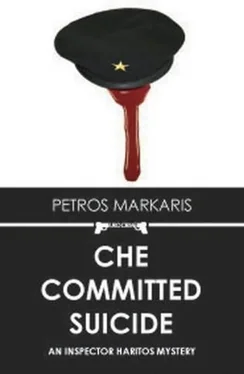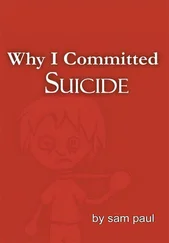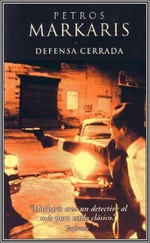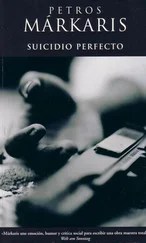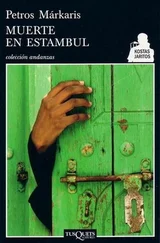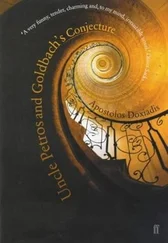I knew. Although in my line of work I rarely saw the panic of the innocent. It was usually the panic of the guilty that I saw.
‘I was in the final year of high school then. Kimon was in junior school. Our mother had died two years previously. We didn’t have anyone, we didn’t know anyone. The following morning, I began asking discreetly where those who had been arrested by the soldiers were taken. And so I learned about the Military Police Headquarters. I got together a bag with clothes because my father hadn’t had time to take anything with him and I went to the Headquarters. They told me I should see Major Skouloudis. He received me very cordially. He said he would personally see to it that my father got the clothes, that they were holding him for interrogation and that he didn’t know when he would be released, but that I shouldn’t worry because he was fine in his health, and that if I wanted to know anything or leave anything for my father, I should always go to him.’ She stopped again and looked at me. ‘Perhaps you’ve already guessed what I’m about to tell you. When you’ve lived all your life in fear and in the dark, when you’re on your own and with a younger brother and you don’t know where to turn and suddenly you meet someone who is friendly to you and seems ready to help you, then that person sooner or later wins you over. But it wasn’t only that. I never got any answers from my parents. Skouloudis, however, was always ready with an answer. He answered all my questions. Agreed, a lot of what he told me was make-believe, but frightened, little children are reassured by make-believe, it’s as simple as that.’ She again let out a sigh. ‘Are you sure I can’t get you anything?’ she asked.
‘No, thank you.’
‘Then I’ll fix myself a drink.’
She got up and went out of the sitting room. I’ve done countless interrogations in my life and I knew how confessions are extracted: like getting blood out of a stone, with hesitations, long-windedness and pauses. I waited patiently, with the sound of the TV still coming from the adjoining room. Yannelis returned holding a glass of whisky with ice.
‘That’s why I fell in love and married my husband, Inspector. For the sense of security that he gave me,’ she said, sitting down again. ‘I was still a minor. I don’t know how Yangos managed to get hold of a marriage licence. We got married quietly. I had Kimon with me, Yangos had invited two friends of his. After the marriage, I asked to see my father. Yangos said that it would be bad for me psychologically, but it would also be bad for him because no one looked kindly on his marriage to the daughter of a bomber. So I sat down and wrote my father a long letter. I didn’t receive any reply. I wrote to him again. Again there was no reply.’
She paused and took a sip of her whisky. It seemed she wanted to get her breath before moving on to the more difficult stuff. ‘The reply came after the fall of the Junta.’
She got up and went over to a cabinet that was on the wall facing the sliding door. She took a folded piece of paper from one of the drawers and handed it to me. I wouldn’t have called it a letter. It was more of a note, written on a white sheet of exam paper.
You betrayed me. You married my torturer. From now on, all I want is to hide the shame. Don’t ever come near me. You’re no longer any child of mine. Kimon will stay with me. You’ll never see him again either.
The signature was a capital ‘T’. I returned the note to Yannelis.
‘I made countless attempts to see him, tried numerous times to phone him, but to no avail. Both my father and my brother cut all ties with me.’ She was upset and took a deep breath in order to calm herself. ‘When I read the news of his suicide, I managed to find out where he lived and rushed to his home. My brother opened the door. He told me to go away and not to attend the funeral because he would have me thrown out of the church.’
‘Didn’t you show your husband the note that your father sent you?’
‘By the time I received the note, it was my husband’s turn to be in prison. They arrested him a week before the first Karamanlis government was sworn in.’
‘And afterwards? Didn’t you ask him to explain himself?’
She let out a bitter laugh. ‘Are you surprised?’
‘A little surprised, yes.’
‘Come with me,’ she said, getting to her feet.
She opened the sliding door and let me go through. I found myself in a smaller room with a sofa, a coffee table and four high-backed chairs against the walls. On the wall facing the sofa there was a TV with an enormous screen. Sitting midway, between the sofa and the TV, was a man in a wheelchair. It was clear at first sight that he had suffered a severe stroke. His left arm was paralysed, his head was resting on his left shoulder and was shaking constantly, while his mouth was twisted to the point of disfiguration. He could only move his right hand, and then with some difficulty.
‘This is my husband, Inspector,’ I heard her say from behind me. ‘Cashiered Infantry Major Yangos Skouloudis. Ol’ Yangos as they called him in the Military Police. He was sentenced to fifteen years’ detention, suffered three strokes in his despair and was released with irreparable damage to his health. He can’t walk or speak and our only communication is by means of these notes.’
She pointed to a basket with notes that was attached to the arm of his wheelchair. A little table, rather like a modern school desk, was fitted to the arm and on it were a notepad and a biro. Evidently, Skouloudis wrote the notes and pushed them into the basket.
‘Read them if you want,’ Yannelis told me.
The effort Skouloudis had to make to write them was visible to the naked eye. The letters were rounded, compressed and written separately, one by one.
This slant-eyed girl only makes me tea. I ask her for coffee and she pays no attention. Oh dear, Oh dear.
The second one was a cry of anguish:
MASHED POTATO! MASHED POTATO! I’M FED UP WITH IT!
‘He can’t chew,’ Yannelis, who was reading over my shoulder, explained. ‘All he can eat are soups, purees and at most a little mashed fish.’
The third was an order in a military tone:
Tell the old bird to take me out for my walk later in the day. She brings me back early and then I suffocate all day.
The last one was a comment:
I saw American Yakuza 2 . Everywhere it’s the strong who win. We were the only ones who lost. A disgrace!
Yannelis bent over him. ‘I have to discuss a few things with the gentleman and then I’ll come back. All right, Yangos dear?’ she said sweetly.
With the constant shaking of his head, it was difficult to know whether he was giving his assent or ignoring her completely. Yannelis motioned to me to go out with her and she closed the sliding door behind us.
‘Three days after his arrest, a friend came by the house and gave me an address and a key. The address was in Liossia. I found a two-roomed flat full of files. Yangos kept copies of all the interrogations he carried out with documents, reports and photographs. Among them, I found my father’s file and the files of Jason Favieros, Loukas Stefanakos and Apostolos Vakirtzis. That’s how I found out about the “Che” organisation. After they’d burned the archives of the Military Police in Keratsini, these were the only records to remain,’ she added with a smile.
‘And where are they now?’
‘Let me finish. While he was in prison, I began to realise the size of the network that Yangos had set up over the years. From time to time, various people came knocking at my door, bringing me information in the hope that they would help “the Major”. One day, during his visiting hours, I told him in sign-coded language that various people kept coming and bringing me gifts for him. He understood immediately and said sharply: “Don’t even touch them.” Till one day, someone came with information that interested me personally. He told me that Yannelis and his group had begun their activities again. They had dissolved the Che Independent Resistance Organisation and, in its place, had founded the October 8th Revolutionary Organisation…’
Читать дальше
